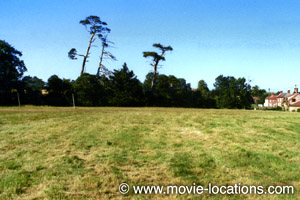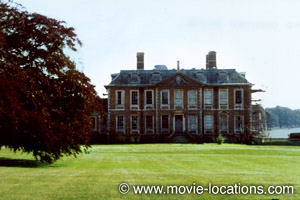The Go-Between | 1971


- Locations |
- Norfolk
- DIRECTOR |
- Joseph Losey
Set in a golden Edwardian summer, punctuated by ominously mysterious flash-forwards to a damp and gloomy present, Joseph Losey’s shamefully neglected film of the LP Hartley story (adapted by playwright Harold Pinter) was made on location in Norfolk.

13-year-old Leo Colston (Dominic Guard) suffers tragic consequences when he breaks turn-of-the-century England’s rigid class rules to pass clandestine notes between the aristocratic Marian, Lady Trimingham, (Julie Christie) and her secret lover, farmer Ted Burgess (Alan Bates).
In the present day scenes, the old and disillusioned Leo (Michael Redgrave) arrives at Norwich Station, Thorpe Road, to revisit the past.

In more innocent times, Marian takes the young Leo on a shopping expedition to Norwich. While Leo is sent to amuse himself in Norwich Cathedral, Marian furtively meets up with Ted Burgess at the horsefair on Tombland. The cathedral's interior more recently provided the king's palace in Bryan Singer's 2013 Jack The Giant Slayer.
Off Tombland itself runs the picturesque Tombland Alley, along which Marian and Leo stroll. The ghoulish name comes from the fact that bodies of plague victims are buried behind its walls.

The local village is Heydon, just west of the B1149, about eight miles west of Aylsham (rail: Aylsham). Here you’ll find the Church of St Peter and St Paul, where the locals gather, and where the older Leo walks in the graveyard.

On the green opposite stands Marian ’s cottage, where the older, blighted Leo is callously asked to carry one last message.

The cricket match, though, is not in Heydon. You can see the green, now rough, overgrown and planted with a couple of decrepit goalposts, just south of the village of Thornage. The three skeletal trees overlooking the green are still recognisable, as are the farm outbuildings. The B1110 runs right through the green.

Southwest of Thornage is Melton Constable on the B1354, and a couple of miles south on the road to Hindolveston, is a large unmarked gate which is the entrance to Melton Constable Hall, now apparently deserted and rather decrepit, which became ‘Brandham Hall’, scene of the tragic events.





